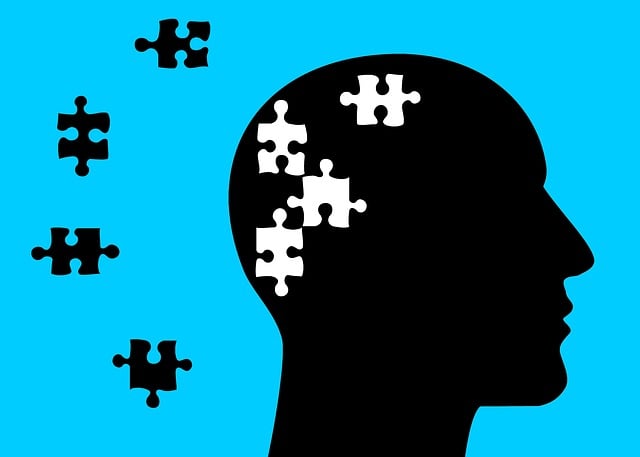Denver Eating Disorders Therapy focuses on developing Emotional Intelligence (EI) through stress reduction, emotional healing, and communication skills, strengthening relationships and creating supportive environments. Recognizing and managing emotions, self-reflection, coping mechanisms, and resilience building are key steps in enhancing EI. Empathy for individuals with eating disorders is crucial for effective crisis intervention and tailored guidance. Cultural sensitivity, community outreach, active listening, and genuine concern foster trust and open dialogue, promoting recovery. Effective communication, a core EI skill, improves connections, conflict resolution, and mental health outcomes, benefiting both individuals and healthcare providers, particularly in high-pressure settings.
Emotional intelligence (EI) is a powerful tool for fostering healthy relationships and improving overall well-being. In Denver eating disorders therapy, building EI is often a key component of recovery, helping individuals navigate complex emotions and connect with others on a deeper level. This article explores four essential aspects of developing emotional intelligence: understanding your own emotions, managing them effectively, empathizing with others, and enhancing communication. By mastering these skills, you can revolutionize your relationships and personal growth.
- Understanding Emotional Intelligence: The Foundation of Healthy Relationships
- Recognizing and Managing Your Own Emotions
- Empathizing with Others: Walking in Their Shoes
- Effective Communication: Bridging the Gap Between Self and Others
Understanding Emotional Intelligence: The Foundation of Healthy Relationships

Understanding Emotional Intelligence forms the bedrock for cultivating healthy relationships, both personally and professionally. It involves recognizing, managing, and responding to one’s own emotions as well as those of others. This fundamental aspect of human interaction is crucial in fostering empathy, compassion, and effective communication, which are key components of any thriving connection.
For individuals seeking support in their emotional well-being, Denver Eating Disorders Therapy offers specialized services that target the development of emotional intelligence. By mastering stress reduction methods and emotional healing processes, individuals can enhance their relationships by better understanding and connecting with themselves and those around them. Communication strategies play a pivotal role here, enabling people to express their feelings openly and effectively, thereby strengthening bonds and creating a more supportive environment.
Recognizing and Managing Your Own Emotions

Recognizing and managing your own emotions is a crucial step in developing emotional intelligence. It involves being aware of your feelings, understanding their origins, and learning to express them healthily. This process begins with self-reflection—pausing to consider your emotional responses and identifying patterns that may indicate underlying issues, such as stress or anxiety. In Denver Eating Disorders Therapy, professionals often guide individuals through this journey, helping them develop coping mechanisms and build resilience against negative emotional triggers.
By managing your emotions effectively, you enhance your ability to connect with others on a deeper level, fostering better relationships. This is where public awareness campaigns development plays a significant role. Initiatives aimed at increasing understanding of mental health issues can stimulate conversations that encourage empathy building strategies. Confidence boosting techniques, often integrated into these efforts, empower individuals to confront their emotions directly, thereby improving overall emotional intelligence and well-being.
Empathizing with Others: Walking in Their Shoes

Empathizing with others is a powerful aspect of emotional intelligence that involves understanding and sharing the feelings of those around us. When we strive to walk in someone else’s shoes, particularly those facing challenges like eating disorders in Denver, it opens doors to deeper connections and meaningful support. This ability to empathize allows us to offer Crisis Intervention Guidance, tailoring our approach to meet individual needs without judgment.
By cultivating cultural sensitivity in mental healthcare practice, we can create a safe space for individuals from diverse backgrounds to seek help. Implementing Community Outreach Programs that focus on raising awareness about eating disorders and promoting early intervention can significantly impact recovery outcomes. Through active listening and genuine concern, we build trust, fostering open dialogue and encouraging those struggling to seek the support they deserve.
Effective Communication: Bridging the Gap Between Self and Others

Effective communication is a cornerstone of emotional intelligence, especially when it comes to understanding and connecting with others. In Denver Eating Disorders Therapy, professionals emphasize the importance of active listening and clear expression to bridge the gap between self and others. This involves not just hearing what’s being said but truly comprehending the emotions and experiences behind the words. By practicing empathetic communication, individuals can foster deeper relationships, improve conflict resolution, and enhance overall well-being.
In the context of burnout prevention strategies for healthcare providers, strong emotional intelligence equips them with the tools to navigate challenging interactions without losing sight of their inner strength development. This is particularly crucial in high-pressure environments where depression prevention is a significant concern. Effective communication can help healthcare providers better manage expectations, foster a supportive work environment, and ultimately enhance patient care.
Emotional intelligence is a powerful tool for fostering healthy relationships, whether personal or professional. By understanding our own emotions, recognizing and managing them effectively, and empathizing with others, we can create deeper connections and improve communication. This journey towards emotional maturity is a continuous process, and Denver Eating Disorders Therapy offers valuable support in navigating this path. Through specialized services, individuals can learn to build resilience, enhance their relationships, and lead more fulfilling lives. Remember, recognizing and managing emotions is the cornerstone of personal growth and a key aspect of seeking Denver eating disorders therapy.














